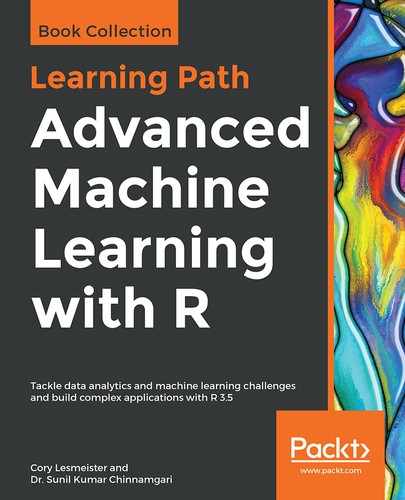A recommendation engine that is solely based on the explicit or implicit feedback received from customers is termed as content-based recommendation system. Explicit feedback is the customer's expression of the interest through filling in a survey about preferences or rating jokes of interest or opting for newsletters related to the joke or adding the joke on the watchlist, and so on. Implicit feedback is more of a mellowed-out approach where a customer visits a page, clicks on a joke link, or just spends time reading a joke review on an e-commerce page. Based on the feedback received, similar jokes are recommended to the customers. It may be noted that content-based recommendations do not take into consideration the preferences and feedback of other customers in the system; instead, it is purely based on the personalized feedback from the specific customer.
In the recommendation process, the system identifies the products that are already positively rated by the customer with the products that the customer has not rated and looks for equivalents. Products that are similar to the positively-rated ones are recommended to the customers. In this model, the customer's preferences and behavior play a major role in incrementally fine-tuning the recommendations—that is, with each recommendation and based on whether the customer responded to the recommendation, the system learns incrementally to recommend differently. The following diagram is an illustration of how a content-based recommendation system works:

In our Jester jokes dataset, we have ratings given by users for various jokes as well as the content of the jokes themselves. Remember that the JesterJokes character vector incorporates the text present in the jokes themselves. Similarities between the texts present in the jokes can be used as one method to recommend jokes to users. The assumption is that if a person liked the content in a joke, and if there is another joke whose content is very similar, recommending the latter joke is probably going to be liked by the user.
Additional metadata related to jokes is not given in the Jester jokes dataset, however such metadata may be created from the content of the jokes. For example, the length of the joke, number of nouns, number of funny terms present in the joke, and central theme in the joke. Processing the text is not purely a recommendation area but it involves using NLP techniques as well. As we will be covering NLP in a different chapter, we will not cover it here.
